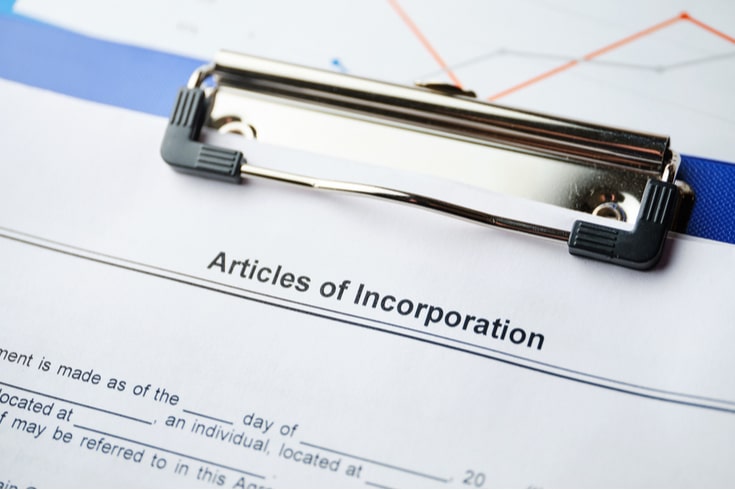What is the Electronic Provision System for Shareholders' Meeting Materials? Explaining the Key Points of the Amended Japanese Companies Act Enforced in 2022

As of September 1, 2022 (Reiwa 4), a system for the electronic provision of shareholder meeting materials has been initiated. By following the prescribed procedures, companies can enable shareholders to view the materials for shareholder meetings on their website. This system allows institutional investors and others to secure ample time to consider each company’s proposals, and it enables companies to save on mailing costs and distribution efforts.
However, there are points to note in terms of procedures and operations when introducing this system for the electronic provision of shareholder meeting materials.
In this article, we will provide a detailed explanation of the procedures for introducing the electronic provision system. We will also share points to be aware of after its introduction. If you are considering this, please use this as a reference.
What is the Electronic Provision System for Shareholders’ Meeting Materials?
The Electronic Provision System for Shareholders’ Meeting Materials is a system that allows companies to provide shareholders with materials for shareholders’ meetings by posting them on their own websites, instead of the traditional method of delivering them in writing. This system is stipulated in Article 325-2 of the Japanese Companies Act. As of September 1, 2022, the revised Companies Act has made it possible to provide shareholders’ meeting materials electronically.
Under this system, directors are considered to have legally provided shareholders’ meeting materials by posting them on their company’s website before the shareholders’ meeting and notifying shareholders of the website’s address along with the notice of the shareholders’ meeting.
It should be noted that shareholders can also request the company to deliver the materials in writing.
Background of the Electronic Provision System for Shareholders’ Meeting Materials

The implementation of this system was prompted by factors such as the concentration of shareholders’ meetings and the insufficient functioning of the previous system.
Many listed companies hold their regular shareholders’ meetings in late June. The concentration of meetings has led to the problem of institutional investors, who invest in many listed companies, not being able to secure enough time to review the meeting materials.
Under the old Companies Act, there was a system for providing shareholders with meeting materials by uploading them to the Internet. However, this required the consent of individual shareholders, making it a high hurdle, especially for listed companies with many shareholders.
While there was also a system for deemed provision through web disclosure, it did not cover items of particular interest to shareholders, such as balance sheets and income statements, making it not a very user-friendly system.
Therefore, the electronic provision system was established in the revised Companies Act enacted on December 4, 2019 (Reiwa 1), and after a period of system modification by the Japan Securities Depository Center, it was officially implemented on September 1, 2022 (Reiwa 4).
Procedure for Calling a Shareholders’ Meeting Using the Electronic Provision System
When adopting the Electronic Provision System for Shareholders’ Meeting Materials, the shareholders’ meeting is convened in the following manner:
- The corporation posts the information three weeks before the date of the shareholders’ meeting (Article 325-2 and 3 of the Japanese Companies Act).
- Two weeks before, the corporation sends a notice of convocation to the shareholders, which includes the URL where the information is posted.
- The shareholders access the site to check the information.
Shareholders who have difficulty accessing the Internet can also request the corporation to deliver the materials in writing. The reference documents for the shareholders’ meeting that are subject to the electronic provision system include important documents that influence shareholders’ decision-making, as follows:
- Date and place of the shareholders’ meeting
- Purpose of the shareholders’ meeting
- Possibility of exercising written resolution rights by shareholders not attending the shareholders’ meeting
- Exercise of voting rights by electromagnetic means by shareholders not attending the shareholders’ meeting
- Outline of shareholder proposals
- Financial documents and business reports
- Consolidated financial documents
Conditions for Applying the Electronic Provision System
The Electronic Provision System does not apply to all corporations. This system applies only to the following types of corporations:
- Book-entry Transfer share issuing companies (all listed companies are applicable)
- Corporations that have resolved to change their articles of incorporation to provide for the electronic provision system and have registered the change
For listed companies (Book-entry transfer share issuing companies), the adoption of the electronic provision system is mandatory from September 1, 2022. For other non-listed companies, the system can be adopted by changing the articles of incorporation and registering the change.
Amendment of Articles of Incorporation for the Electronic Provision System of Shareholders’ Meeting Materials

So, how can your company actually adopt this system? Below, we will explain how to adopt the electronic provision system in your company.
Book-entry Transfer Share Issuing Companies (All Listed Companies are Applicable)
As of September 1, 2022 (2022年9月1日), book-entry transfer share issuing companies are considered to have resolved to amend their articles of incorporation to adopt the electronic provision measures. Book-entry transfer share issuing companies are companies that have digitized their share certificates, and all currently listed corporations are applicable.
Amendment of the articles of incorporation requires a special resolution at the shareholders’ meeting under the Japanese Companies Act (Japanese Companies Act Article 466). To establish a special resolution, shareholders holding a majority of voting rights must be present, and they must obtain more than two-thirds of the voting rights.
Despite the imposition of the electronic provision system, such transitional measures were established to prevent the burden on listed companies from becoming excessive if they were required to make complicated resolutions to amend their articles of incorporation.
However, even without a resolution to amend the articles of incorporation, registration of the amendment is necessary.
Corporations Other Than Book-entry Transfer Share Issuing Companies
Corporations other than listed companies need to make a special resolution at the shareholders’ meeting to amend their articles of incorporation in accordance with the law.
However, newly established corporations can stipulate in their articles of incorporation created at the time of establishment that they will adopt the electronic provision system.
Registration Procedure for Articles of Incorporation Amendment
When you amend the Articles of Incorporation, it is necessary to register the amendment at the Legal Affairs Bureau. The items to be registered are as follows:
- Provision in the Articles of Incorporation stating the adoption of electronic delivery measures
- Date of amendment
Period for Registration After Amendment of Articles of Incorporation
Under the Japanese Companies Act, when a change occurs in the registered items of a company, it is stipulated that the change should be registered within two weeks (Article 915, Paragraph 1 of the Japanese Companies Act). Since the amendment of the Articles of Incorporation falls under the company’s registered items, registration must be completed within two weeks from the effective date. The effective date is the day when the resolution was made at the general meeting of shareholders.
However, for listed companies issuing transfer shares, it is considered that a resolution to amend the Articles of Incorporation for the electronic delivery system has been made, so the deadline for registration of amendment of the Articles of Incorporation is within six months from September 1, 2022.
Items to be Registered
In the “Items to be Registered” section of the registration application form, write down the provision to adopt the electronic delivery system as stated in the Articles of Incorporation.
The date of amendment for listed companies issuing transfer shares is September 1, 2022, the enforcement date of the amended Companies Act, and for other companies, it is the effective date of the amendment of the Articles of Incorporation.
However, you cannot register provisions to post information on a website or to provide only part of the information electronically. Also, since it is a registration of whether or not to adopt the electronic delivery system, you cannot register optional content such as “can take electronic delivery measures”.
Attachments
The documents to be attached when applying for registration differ depending on whether the company is a listed company or another type of corporation.
For listed companies, since the special resolution for the amendment of the Articles of Incorporation is omitted, a document certifying that “the company is a company issuing transfer shares as of September 1, 2022 (Gregorian calendar)” is attached. For other corporations, the minutes of the general meeting of shareholders that resolved the amendment of the Articles of Incorporation and the list of shareholders are attached.
Regardless of whether the company is listed or not, a registration license tax of 30,000 yen is required per application.
Points to Consider When Implementing the Electronic Provision System for Shareholders’ Meeting Materials

The electronic provision system for shareholders’ meeting materials has the advantage of allowing shareholders to secure ample time to consider each company’s proposals, while enabling the company to cut costs for document creation and mailing.
However, as information is disclosed via the internet, there are issues such as server downtime and hacking damage during the disclosure period. If these cause an interruption in information disclosure, it could not only be a reason for cancelling the shareholders’ meeting resolution, but also subject to a civil fine (Japanese Companies Act, Article 831, Paragraph 1, Item 1, and Article 976, Item 19).
However, if the electronic provision measures are interrupted, it is stipulated that the interruption does not affect the resolution of the shareholders’ meeting if the following four requirements are met (Japanese Companies Act, Article 325-6).
<Requirements for the electronic provision system to be considered implemented>
- The company is in good faith and without gross negligence, or there is a legitimate reason for the interruption of the electronic provision measures.
- The time of the interruption of the electronic provision measures does not exceed one-tenth of the period during which the measures were taken.
- If an interruption occurs from the start of the electronic provision measures to the day of the shareholders’ meeting, the interruption period does not exceed one-tenth of that period.
- After becoming aware of the interruption, promptly took electronic provision measures regarding the fact of the interruption, the time of the interruption, and its content.
When an interruption occurs, take measures such as saving the logs of the website to be able to prove the above four points. Also, one way to reduce the risk of interruption is to implement electronic provision measures on multiple websites.
Summary: Consult a Lawyer for the Electronic Provision System of Shareholders’ Meetings
The electronic provision system for shareholders’ meeting materials is a system that benefits both shareholders and the company.
However, to adopt this system, it is necessary to go through procedures such as amending the articles of incorporation and registering them, and it will also be important to take measures for crisis management after implementation.
When adopting the electronic provision system, it is advisable to proceed with the consultation of a lawyer who is not only knowledgeable about the Japanese Companies Act, but also has expertise in internet and system troubles.
Introduction to Our Firm’s Measures
Monolith Law Office is a legal office with high expertise in both IT, particularly the internet, and law. Legal checks are necessary for shareholder meeting responses. Our firm analyzes the legal risks of businesses that have already started or are about to start, based on various legal regulations, and aims to legalize them as much as possible without stopping the business. Details are described in the following article.
Areas of practice at Monolith Law Office: Corporate Legal Affairs for IT & Startups.jn
Category: General Corporate
Tag: General CorporateIPO





















